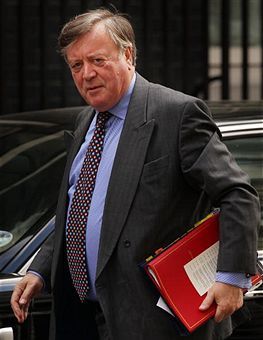 Along with defence, there’s one other area where rolling back the state
doesn’t come naturally to Conservatives: criminal justice. The massive cuts looming on the horizon for the criminal justice system would have been politically toxic for any party to deliver,
but for the traditional party of law and order there will be a special discomfort.
Along with defence, there’s one other area where rolling back the state
doesn’t come naturally to Conservatives: criminal justice. The massive cuts looming on the horizon for the criminal justice system would have been politically toxic for any party to deliver,
but for the traditional party of law and order there will be a special discomfort.
Ken Clarke’s speech this morning was much less exciting for the penal reform/abolitionist lobby than the morning papers indicated. Echoing Nick Herbert’s speech to Policy Exchange last
week, the Justice Secretary rightly said that that the test of a successful criminal justice system was not simply the number of people you lock up – but in the Q&A session, he revealed that he
was not, in fact, seeking to reduce the prison population (indeed a contract for the building of a new prison is due to be signed tomorrow).
Of course, the Prison Service will have to bear its share of the burden of fiscal consolidation. And it’s even possible that over the next four years, some prisons will indeed be closed,
prison staff numbers cut and the prison population reduced somewhat by changes to sentencing rules. If these savings become unavoidable as a result of the CSR settlement, the big question is: how
do you go about it?
So far the debate has focused on short sentences, with many (including Clarke this morning) arguing that they are generally ineffective at reducing reoffending – especially compared with
community sentences. But there’s no evidence that community sentences are more effective than short prison sentences; as Ministry of Justice officials privately admit, you are not
comparing like with like. By definition (and we have very prescriptive sentencing guidelines governing this), someone receiving a short prison sentence will have committed a more serious criminal
offence, been deemed to be more of a risk to the public, or will have a very long string of previous offences (consider the fact that half of short-sentenced prisoners have 15 or more previous
convictions). It’s hardly surprising that their risk of reoffending is higher.
What is more, short sentences are the wrong focus if you want to save money. Scrapping short sentences would mean stopping 60,000 criminals a year from going to prison to free up just around 8,000
places. Not only are there small financial returns (not to mention the hostile reaction of the tabloids and the public), but a focus on short sentences doesn’t address the real drivers of the
growth in the prison population. According to the Ministry of Justice itself, the growth has been due to an increase in the severity of cases coming before the courts and a marginal increase in the
length of longer sentences. The only logical way to arrest the growth is to address those drivers, which means reforming indeterminate sentencing, encouraging the Parole Board to release more
time-served prisoners and reversing some of the tougher sentencing introduced by the previous government. Of course, it’s more politically toxic for Ministers to let people out than to stop
them going there in the first place – but tackling the causes is the only way to really address the problem.
Max Chambers is a Research Fellow at Policy Exchange’s Crime and Justice Unit






Comments